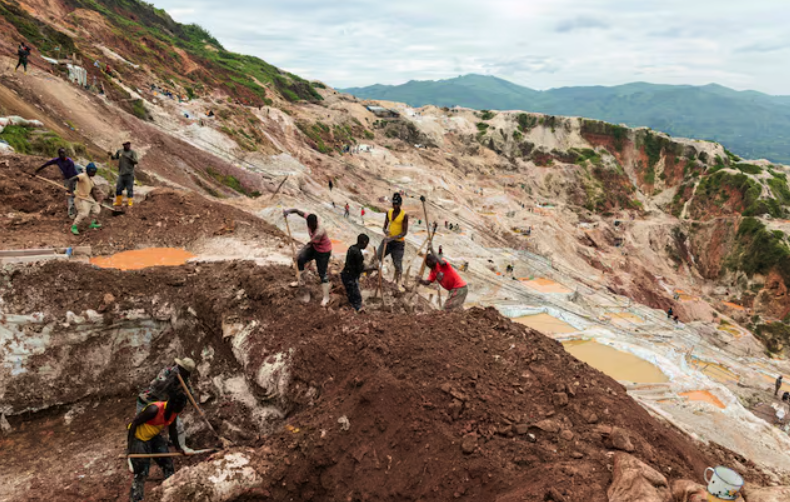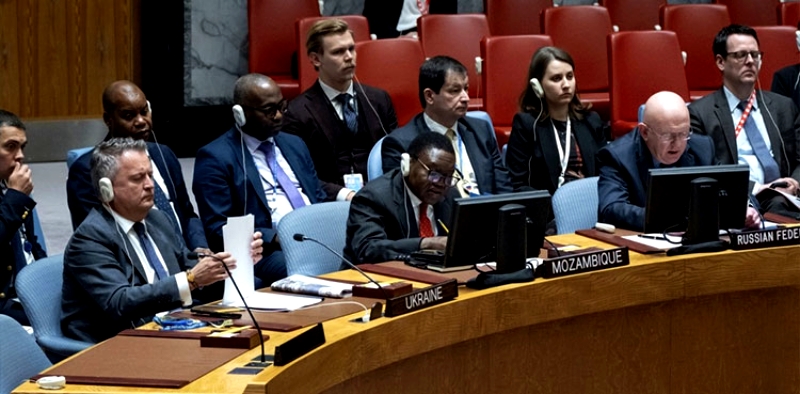UNITED NATIONS: Russia failed to regain its seat on the UN Human Rights Council on Tuesday during an election in the General Assembly, which voted last year to suspend Moscow following its invasion of Ukraine.
Russia was competing against Albania and Bulgaria for two seats on the 47-member Geneva-based body to represent the Eastern European regional group. In the secret ballot, Bulgaria secured 160 votes, while Albania received 123. Russia obtained 83 votes.
During a Security Council session on Monday, Russia’s UN Ambassador Vasily Nebenzya accused the United States of spearheading efforts to hinder Russia’s re-entry to the human rights body.
“The main phobia of our American colleagues today is electing Russia to the Human Rights Council,” Nebenzya told Security Council the meeting called by Ukraine to discuss last week’s strike by a Russian missile on the Ukrainian village of Hroza that killed more than 50 people.
US Deputy Ambassador Robert Wood told 15-member Council members on Monday that Russia’s re-election to the Human Rights Council “would be an ugly stain that would undermine the credibility of the institution and the United Nations”.
The other regional races were not competitive. After the ballots were cast and counted, Assembly President Dennis Francis announced Albania, Brazil, Bulgaria, Burundi, China, Cote d’Ivoire, Cuba, Dominican Republic, France, Ghana, Indonesia, Japan, Kuwait, Malawi, and the Netherlands were elected to serve for three years, beginning 1 January 2024.
China, Cote d’Ivoire, Cuba, France, and Malawi were re-elected for their second terms.
The Human Rights Council, the UN’s premier rights body, is tasked with the responsibility to uphold and advance fundamental freedoms globally.
Created in 2006, it’s members are elected via secret ballot by a majority of General Assembly members. In order to ensure equitable geographical distribution, its seats are distributed among regional groups of States as follows, from Africa (13); Asia-Pacific (13); Eastern European (6); Latin American and Caribbean (8); and Western European and others (7).
Malawi topped the voting for African nations, with 182 votes, followed by Cote d’Ivoire (181), Ghana (179), Burundi (168), and Nigeria (3). In Asia and the Pacific, Indonesia secured 186 votes, followed by Kuwait (183), Japan (175), and China (154).
In Eastern Europe, Bulgaria received 160 votes, followed by Albania (123), and Russia (83). Russia was seeking re-election to the Human Rights Council after it resigned from the body on 7 April 2022. Latin America and the Caribbean saw Cuba secure 146 votes, followed by Brazil (144), Dominican Republic (137) and Peru (108).
This is the first time Dominican Republic is elected to the Human Rights Council.
In Western Europe and others, the Netherlands received 169 votes, and France 153.
The new members will join Algeria, Argentina, Bangladesh, Belgium, Benin, Cameroon, Chile, Costa Rica, Eritrea, Finland, Gambia, Georgia, Germany, Honduras, India, Kazakhstan, Kyrgyzstan, Lithuania, Luxembourg, Malaysia, Maldives, Montenegro, Morocco, Paraguay, Qatar, Romania, Somalia, South Africa, Sudan, United Arab Emirates, United States of America, and Vietnam on 1 January 2024.










